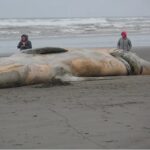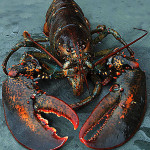Daily Archives: July 22, 2017
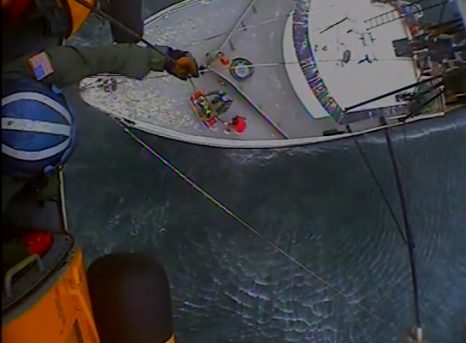
Coast Guard medevacs injured fisherman near Martha’s Vineyard
A Coast Guard Air Station Cape Cod crew medevaced an injured fisherman Saturday afternoon from Muskeget Channel between Martha’s Vineyard and Nantucket. At around 1:30 p.m. the 75-foot fishing vessel Perception notified Coast Guard watchstanders that a crewmember had fallen and sustained injuries and was in need of medical attention. An Air Station Cape Cod MH-60 Jayhawk rescue helicopter was already in the air and diverted to assist. The aircrew arrived on scene and hoisted the fisherman off Perception at around 2:15 p.m. They then flew to Hyannis Airport and transferred the patient to awaiting Emergency Medical Services personnel at around 2:45 p.m. The fisherman was then brought to Cape Cod Hospital for further care. -USCG- click for video 21:43
The fascinating history of sea serpent sightings in the Humber and North Sea
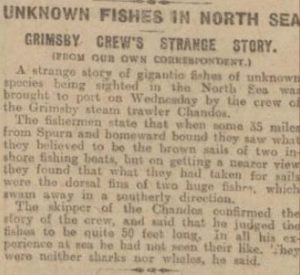 Newspaper reports dating back as far as the 1920s detail mysterious creatures spotted by trawlermen.,,, The story began in August 1922, when on Wednesday, August 30, a Grimsby steam trawler named CHANDOS, had a run-in with a sea serpent in the North Sea, 35 miles out from Spurn Point. The crew, who had sailed from Grimsby that morning, believed that they were initially seeing two brown sails from two inshore fishing boats, so approached them at a steady rate of knots. click here to read the story 12:37
Newspaper reports dating back as far as the 1920s detail mysterious creatures spotted by trawlermen.,,, The story began in August 1922, when on Wednesday, August 30, a Grimsby steam trawler named CHANDOS, had a run-in with a sea serpent in the North Sea, 35 miles out from Spurn Point. The crew, who had sailed from Grimsby that morning, believed that they were initially seeing two brown sails from two inshore fishing boats, so approached them at a steady rate of knots. click here to read the story 12:37

The man who destroyed the West Coast rock lobster
It took only 14 years for Cape Town businessman Arnold Bengis to decimate one of South Africa’s most treasured marine species. Now he is being made to pay by a US court‚ which has ordered the 81-year-old to cough up $37-million (about R483-million) for pillaging thousands of tons of rock lobster. South Africa will be the first foreign government in the world to be compensated under a 117-year-old US law‚ the Lacey Act‚ which regulates imports of protected species.,,, Former DAFF head of fisheries Horst Kleinschmidt‚ who testified in the District Court in 2004 about Bengis’s fishing activities‚ quoted research that suggested that free-falling rock lobster stocks “immediately stabilised” after his operation was stopped. click here to read the story 11:53
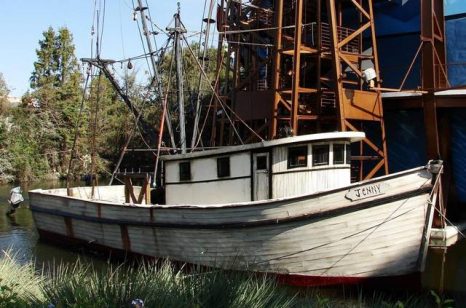
Legendary Beaufort waterman caught the big one when ‘Forrest Gump’ came to town
Jimmie Lee Stanley was all but born in the river, and he was surf fishing for black drum, flounder and speckled trout the weekend before he died. He passed away in June in Beaufort, where he born, like his father, grandfather and great-grandfather. He was only 63. Stanley could hunt and fish and shrimp with the best of them, and cook what he brought home — always the more the merrier.,,, But his biggest catch was an odd one. It’s one he loved with all his heart. It happened when his 65-foot wooden hull shrimp boat, the Miss Sherri was plucked from a sea of trawlers by Hollywood directors to be christened the Jenny in the blockbuster movie, “Forrest Gump.” click here to read the story 11:00
Government will review Supreme Court order on $250M Placentia Bay project: minister
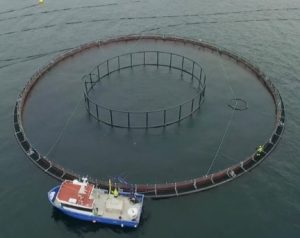 The Supreme Court of Newfoundland and Labrador on Thursday overturned the provincial government’s decision to release a quarter-billion dollar salmon farming project in Placentia Bay from further environmental assessment. Justice Gillian Butler ruled on July 20 that Perry Trimper, then the environment and climate change minister, “lacked jurisdiction” to release the project from a full environmental assessment, and that an environmental impact statement had to be completed. The impact statement would have required an ecosystem and population study of the wild salmon in Placentia Bay, as well as a contingency plan and extensive public consultation. click here to read the story 09:56
The Supreme Court of Newfoundland and Labrador on Thursday overturned the provincial government’s decision to release a quarter-billion dollar salmon farming project in Placentia Bay from further environmental assessment. Justice Gillian Butler ruled on July 20 that Perry Trimper, then the environment and climate change minister, “lacked jurisdiction” to release the project from a full environmental assessment, and that an environmental impact statement had to be completed. The impact statement would have required an ecosystem and population study of the wild salmon in Placentia Bay, as well as a contingency plan and extensive public consultation. click here to read the story 09:56
Will banning trade in fins help endangered sharks? Experts are divided
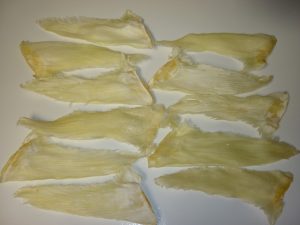 The Shark Fin Sales Elimination Act of 2017, introduced before Congress on March 9, would terminate the possession and trade of shark fins in all 50 U.S. states and 16 territories. Activists and advocacy groups often cheer these bans as a way to protect sharks. Internationally about 70 of the planet’s 400-plus shark species now face extinction, often due to overfishing. However, some experts argue that better tracking to determine whether imported fins were caught sustainably, followed by trade restrictions on those that weren’t, represent the best steps toward saving threatened shark species. Some go so far as to argue that a U.S. trade ban may do more harm than good, by crushing a domestic industry that exports sustainably caught fins to markets in Asia and allowing less-sustainable fisheries to take up the slack. click here to read the story 08:54
The Shark Fin Sales Elimination Act of 2017, introduced before Congress on March 9, would terminate the possession and trade of shark fins in all 50 U.S. states and 16 territories. Activists and advocacy groups often cheer these bans as a way to protect sharks. Internationally about 70 of the planet’s 400-plus shark species now face extinction, often due to overfishing. However, some experts argue that better tracking to determine whether imported fins were caught sustainably, followed by trade restrictions on those that weren’t, represent the best steps toward saving threatened shark species. Some go so far as to argue that a U.S. trade ban may do more harm than good, by crushing a domestic industry that exports sustainably caught fins to markets in Asia and allowing less-sustainable fisheries to take up the slack. click here to read the story 08:54
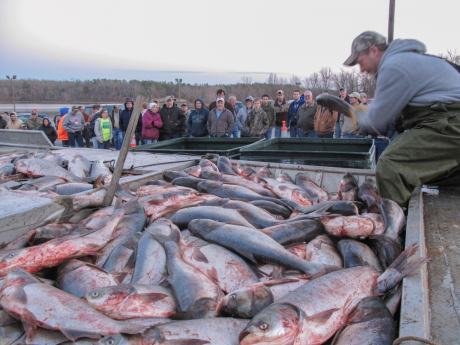
Kentucky State Fish and Wildlife Department seeking input on entrepreneurial solutions for Asian carp problem
Asian carp swim by the millions in Kentucky’s waterways, threatening to crowd out native fish in some of the state’s most cherished fishing destinations – including Kentucky and Barkley lakes in the west. With an absence of predators and little natural controls available for these invasive species, the Kentucky Department of Fish and Wildlife Resources, the state Tourism, Arts and Heritage Cabinet and the Commonwealth of Kentucky are seeking public input on a plan to limit the explosive growth of Asian carp populations while providing a valuable protein source for people. State officials will evaluate a potential public/private partnership to boost the emerging Asian carp fish processing business in Kentucky. State support of entrepreneurs could include hiring commercial anglers and rental of necessary equipment; supplying freezer space in warehouses; purchasing catches during low demand times; and cash incentives, among other potential solutions. click here to read the story 08:30
Tasmanian fishermen fed up with seal relocation into other fishing grounds
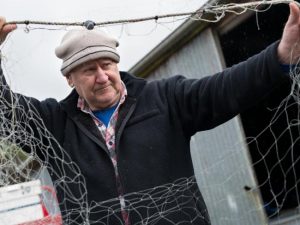 The relocation of problem seals from fish farms to the state’s North-West is causing anger among commercial fishers, who say their nets are being plundered by increasingly aggressive seals and their catches are significantly down. The transporting of seals away from salmon farms began in the 1990s as a temporary way of providing respite until better pen security measures were introduced. But almost 30 years later, a frustrated band of small mesh net fishermen say they have had enough and it is time for the State Government to stop rogue seals being moved away from pens and into other fishing grounds. “Relocating hungry seals from one enterprise to another is akin to moving a problem wild dog from one sheep farm to another.” click here to read the story 08:09
The relocation of problem seals from fish farms to the state’s North-West is causing anger among commercial fishers, who say their nets are being plundered by increasingly aggressive seals and their catches are significantly down. The transporting of seals away from salmon farms began in the 1990s as a temporary way of providing respite until better pen security measures were introduced. But almost 30 years later, a frustrated band of small mesh net fishermen say they have had enough and it is time for the State Government to stop rogue seals being moved away from pens and into other fishing grounds. “Relocating hungry seals from one enterprise to another is akin to moving a problem wild dog from one sheep farm to another.” click here to read the story 08:09


































